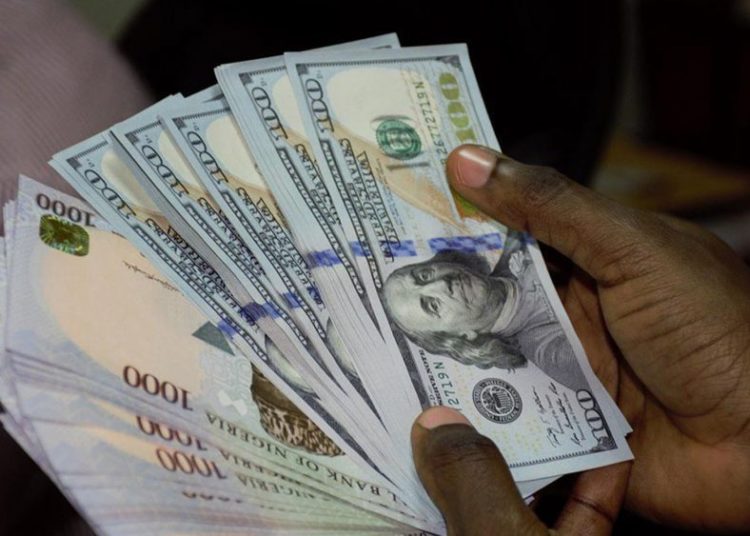Naira’s steep fall against the US dollar over the past week has been ‘reasonable’ compared to other frontier and emerging market currencies, according to JP Morgan Chase, BusinessDay reports.
The naira plunged to a four-month low at the beginning of the week as President Donald Trump’s tariffs sent shock waves across global markets.
But while it depreciated by about three per cent on Monday defying the Central Bank of Nigeria (CBN) around $550 million intervention over the past week, it however appreciated slightly by N0.68 as the dollar was quoted at N1,611.55 compared to N1,612.23 the previous day. It was also sold at N1,565 per dollar on the street, according to the data from traders and online platforms that collate exchange rate.
“When compared to its peers as well as more liquid markets, NGN’s -3.6 per cent move against USD over the past week has been reasonable, in our view (it’s been as much as 6.5 per cent weaker at some points),” JP Morgan said in a note to clients.
The U.S based investment bank describes the CBN’s intervention in the FX market as ‘proactive’, noting that the dollar sales was necessary in order to avoid convertibility risks and limit a disorderly move higher.
“The central bank has sold around $550million to the market over the last week (vs USSI.0bn for the whole of March), a trend which we expect will continue as we think foreign portfolio outflows are likely to accelerate from here (we estimate FPI holdings still amount to at least USS10 billion, although a substantial part of these may be private placements which may not be unwound on the interbank market).”
The recent fluctuation of the naira is a reaction to a global pronouncement, according to Samuel Oyekanmi, research and insights associate at Abuja-based investment consultancy firm, who believes the exchange rate movement does not call for “panic yet”.
“I sense it is momentary pressure because eventually the US and its trade war foes would have to negotiate and find a balance or not, which would stabilize the market,” Oyekanmi said. “You could expect to see CBN take actions in mopping liquidity and sending a signal of “higher for longer” through its auction today.”
The decline in naira is not only peculiar to Africa’s most populous nation. Other frontier and emerging markets are equally feeling the heat as the rand, rupee and yuan tumbled to record lows.
South Africa’s rand tumbled on Wednesday to its weakest on record against the US dollar as investors scamper for safe havens, after it reached 19.9328 per dollar compared to 19.52/$ on Tuesday, according to Bloomberg.
On the Asian front, the Chinese onshore yuan fell to its lowest level since December 2007, closing at 7.34/$ on Wednesday as Trump’s reciprocal tariffs kick in.
The Indian rupee was equally not spared as it weakened to a three-week low after ending trade at 86.68 per US dollar, down nearly by 0.5 per cent, according to reports by Reuters.
“I think the steep depreciation of the naira is in line with other currencies of similar economies. If we were falling beyond where other markets have, then maybe a concern will exist,” a source conversant with the market said.
“Our market has demonstrated that there’s liquidity and for foreign portfolio investors (FPI) that want to exit, they can at prevailing prices.”
Chief executive officer of Renaissance Capital Africa, Samuel Sule, said investors continue to monitor relevant key benchmarks including oil prices and are adjusting their portfolios accordingly.
He however noted that while the naira appears to be experiencing some pressures, the central bank is “undertaking its role of ensuring market stability properly and stepping into FX markets when required to maintain order.”





